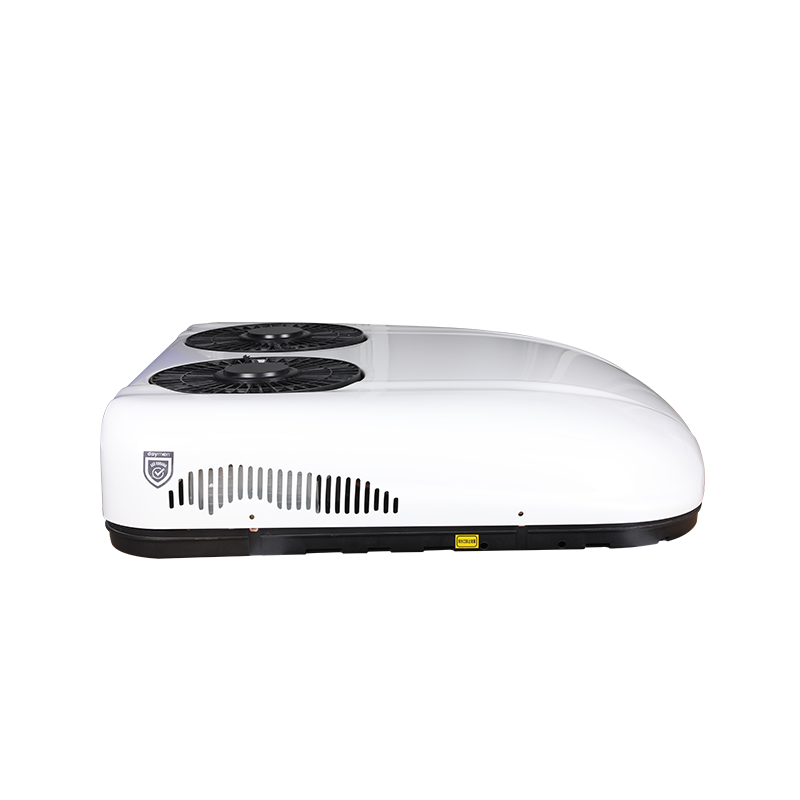The power supply of travel trailer air conditioning units is a crucial factor in their performance and compatibility with different trailer setups. Many standard trailer AC units are designed to operate on 120-volt AC power, which is readily available when the trailer is connected to shore power at a campsite or powered by a generator.

A typical rooftop air conditioning unit draws between 1,200 to 1,800 watts during continuous operation, with startup surges sometimes exceeding 2,500 to 3,500 watts. This means that not all portable generators or inverter systems are capable of supporting an AC unit without planning. Larger air conditioners, especially those with higher BTU ratings, may need a dedicated circuit to prevent overloading the trailer's electrical system.
For off-grid use, trailer owners are increasingly turning to solar-compatible systems, inverter-based AC units, or energy-efficient models that consume less power over time. These are particularly valuable for those who prefer dry camping or boondocking.
Understanding the power supply requirements helps trailer owners make better choices when selecting an AC unit or upgrading their electrical infrastructure. Matching the air conditioner with the available power setup ensures efficient, safe, and uninterrupted cooling while on the road.
The appearance design of trailer air conditioners balances both functionality and aesthetics, with a growing trend toward more compact and integrated systems that blend into the vehicle's exterior and interior. Traditionally, air conditioners were bulky rooftop units, easily visible and often somewhat intrusive in appearance. Today's models, however, are designed with cleaner lines and sleeker profiles.
Exterior design considerations include low-profile housings to reduce wind drag and improve fuel efficiency during travel. A lower height also helps trailers remain within clearance limits, especially important for navigating under bridges or tree limbs.
On the inside, the design focuses on minimal space usage and unobtrusive air vents, often positioned in ceiling panels or upper cabinets. The goal is to provide adequate airflow without compromising interior layout or headroom. Neutral color palettes and modern textures are often used so the unit can blend with various trailer interiors.
Manufacturers also pay attention to user interface design—digital controls, touch panels, or remote-control systems help make adjustments easier without needing to reach awkward switches. Wall-mounted thermostats are commonly integrated for a more seamless look.
The mini split AC for trailers has addressed several long-standing challenges faced by traditional trailer air conditioning systems. One of the biggest issues it solved is noise. Traditional rooftop AC units often produce noticeable sound, both from the compressor and fan. Mini split systems separate the indoor and outdoor components, which significantly reduces indoor noise levels.
Another key problem was inefficiency and energy use. Mini split systems commonly feature inverter technology, which adjusts the compressor speed based on cooling demand. This helps save power and makes these units compatible with solar and generator-based power systems, a growing need among off-grid and eco-conscious travelers.
Space and flexibility were also concerns. Rooftop units typically require cutting into the roof, take up ceiling space, and add height to the trailer. Mini splits offer flexible installation, often mounting on walls or under cabinets, which preserves valuable interior space and doesn't interfere with roof storage or clearance.
Additionally, mini split systems tend to have better temperature control and airflow distribution, making them more effective for trailers with separated spaces or larger interiors.
The emergence of the mini split AC for trailers has provided a quieter, more energy-efficient, and space-conscious alternative to traditional air conditioners. These systems reflect the evolving needs of modern travelers who seek both comfort and control in compact living spaces.